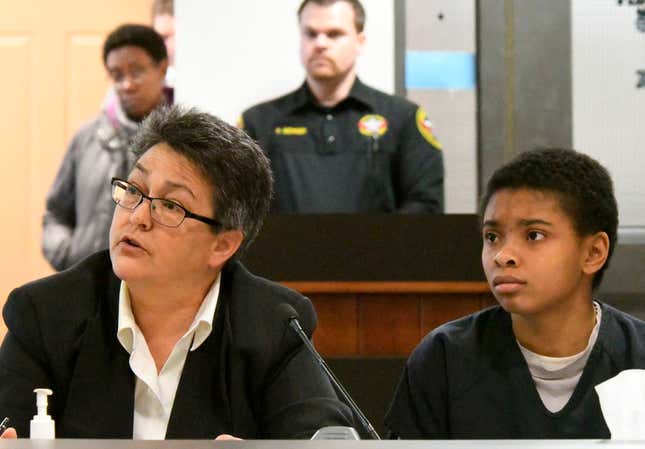
Since she was 17 years old, Chrystul Kizer has been awaiting trial on a homicide charge for the killing of her sex trafficker, Randall Volar III. The Wisconsin Supreme Court upheld a lower court ruling allowing her to argue self-defense to justify the killing, according to NBC News. Before this moment, she was facing greater punishment than Volar before he died.
Reports say Kizer was drugged by Volar the night of the incident. They fought after she refused to have sex with him, leading him to pin her to the ground. Prosecutors allege Kizer shot and killed Volar and set his house on fire. She told The Washington Post she did indeed have a gun in her purse when she was at Volar’s home and that her actions were a result of self-defense.
Now, Kizer faces arson and first-degree intentional homicide charges which could land her a life sentence.
More from The Associated Press:
The justices ruled 4-3 that a 2008 state law that absolves trafficking victims of criminal liability for any offenses committed as a direct result of being trafficked extends to first-degree intentional homicide. However, they said Chrystul Kizer must first provide evidence for a trial judge that her decision to kill Randall Volar was connected to being trafficked before she can invoke immunity.
Nearly 40 states have passed laws that give trafficking victims at least some level of criminal immunity, according to Legal Action of Wisconsin, which provides legal help for low-income people.
Kizer’s attorneys had planned to invoke Wisconsin’s immunity law at her trial, but Kenosha County Circuit Judge David Wilk refused to allow it. He ruled that immunity extends only to trafficking-related charges such as restraining someone, extortion, prostitution or slave labor. An appellate court ruled last year, however, that Kizer could argue that the law shields her from prosecution.
Kizer may be able to connect the killing to being trafficked based on the case that was being built against Volar.
According to The Post, Volar had been arrested in 2018 on charges of child enticement, second-degree sexual assault of a child and using a computer to facilitate a child sex crime. He faced 40 years in state prison but was released the same day he arrested. Kenosha County’s district attorney’s office also confirmed they were working on a case against Volar.
Ian Henderson from the Wisconsin Coalition Against Sexual Assault said trafficking victims often have a fight-or-flight mentality, via AP News. Kizer told The Post she tired of being abused by Volar.
“I just thought that I didn’t want to do that stuff anymore because I was trying to change,” she said.

